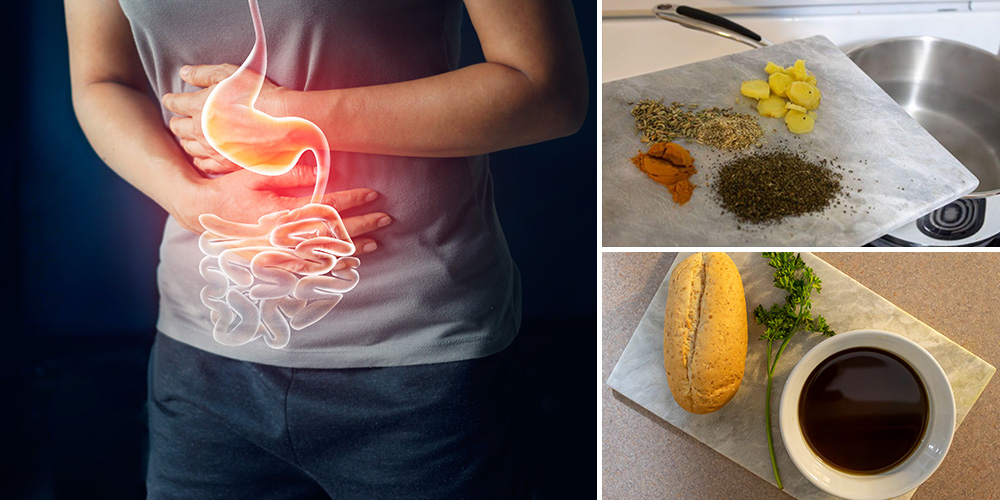
Herbal Glossary: Remedies For Your Stomach
Are you in a crowded area, trying to keep your stomach quiet? Maybe you ate something expired last night, or you are used to experiencing irritable bowels. Whatever your stomach is telling you, you are now in the right spot to get yourself out of that messy situation.
Below is a list of herbs and spices you can add to your meals daily to help settle your stomach. Each herb listed comes with an explanation as to why it will help you and scientific journals for you to read and learn more about it.
At the end of the Herbal Glossary, you will find a quick-fix stomach remedy recipe using the herbs and spices you have learned about.
Herbal Glossary
Ginger
Zingiber officinale has been used for centuries as a spice in cuisines or as a medicinal remedy, particularly for its beneficial effects on the digestive system.
Ginger gains its health benefits from its active compounds including gingerol, shogaol, and zingerone; these compounds also contribute to the amazing flavor it boasts. These compounds help soothe gastrointestinal issues including bloating, indigestion, nausea, and vomiting. Ginger also works as an anti-inflammatory and antioxidant, effectively remediating inflammation and discomfort in the stomach and intestines, improving the overall health of your digestive system.
Many studies have proven ginger’s effectiveness in reducing the severity and duration of nausea and vomiting, particularly in morning sickness, motion sickness, and chemotherapy-induced nausea. If you have constipation or diarrhea, ginger has the properties to help aid both, as well.
Ginger is native to Asia but can easily be grown in your garden during the warm, hot, and humid seasons, or in a properly maintained greenhouse.
Add ginger to your daily routine by adding it to your cooking and baking. It works great as a dinner or dessert spice.
Peppermint
 Mentha piperita is recognized worldwide for its fresh and minty aroma, as well as its benefits for our digestive health.
Mentha piperita is recognized worldwide for its fresh and minty aroma, as well as its benefits for our digestive health.
Peppermints’ main active compounds that work hard in aiding digestive issues are menthol and menthone. The calming effects peppermint has on the GI tracts and stomach lining is what makes it such a valuable remedy for stomach and digestion-related complaints.
Plenty of studies have proven that peppermint is effective in relieving the symptoms of IBS (irritable bowel syndrome). What makes peppermint so effective at calming IBS is the antispasmodic and anti-inflammatory actions that help relax the smooth muscles of the digestive tract, reducing spasms and inflammation. Also, peppermint encourages the production and flow of bile which promotes the digestion of fats, improving digestive functions.
Native to Europe and the Middle East, peppermint has also been neutralized in North America. It can be easily grown in your backyard in the right conditions, or grown in a greenhouse.
Add peppermint to your daily routine by drinking it as a tea, 1 cup 1-3 times daily, adding it to smoothies, or using it in your cooking and baking.
Turmeric
Curcuma longa has been a reliable digestive remedy since the days of Hippocrates and is renowned for its vibrant yellow color.
The active medicinal compound in turmeric is curcumin, which is where turmeric gets its several health benefits. Turmeric’s anti-inflammatory properties alleviate any inflammation in the digestive tract and its antispasmodic effects help ease any cramping, tightening, and spasms. On top of that, turmeric also stimulates the production of bile which promotes the overall health of the digestive system.
Turmeric is native to Asia but has the potential to grow in colder climates such as North America, however, it might not grow to its fullest potential or produce flowers.
Turmeric can be easily added to your daily routine by adding turmeric powder to your dinner meals, because of its mild taste it can be added to anything savory. You can also take turmeric as a capsule in daily doses.
Chamomile
Chamaemelum nobile is another remedy used for centuries and has never been forgotten as a remarkable digestive aid. The flowers are commonly used in the calming chamomile tea.
The active compounds in chamomile, apigenin, chamazulene, and bisabolol, have proven to contribute to medicinal properties such as anti-inflammatory, antispasmodic, and calming nervine. These medicinal properties all aid the digestive system by alleviating indigestion, bloating, cramping, and swelling. Because of chamomile’s calming nervine properties, it provides a mild sedative effect which can be beneficial in managing stress-related digestive problems.
Chamomile grows in various regions including Europe, India, and North America. You can grow it in your backyard or a greenhouse fairly easily in the right conditions.
The easiest way to add chamomile to your daily routine is to drink 1 cup of chamomile tea 1-3 times daily. You can add the flower petals to salads as well.
Reishi, Turkey Tail, Lion’s Mane, and three other herbs are scientifically proven to provide great aid to your overall gut health. That’s why in the recipe below I recommend you add at least a few drops of the Balanced Gut Blend Tincture. This way you won’t just target your stomach, but your whole digestive system. You can get it from here!
Fennel
Foeniculum vulgare is an aromatic herb used traditionally as a digestion aid. Some practices offer fennel seeds after dinner to improve the digestion of your meal and the health of your digestive tract.
Renowned for its carminative actions, fennel helps relieve gas, bloating, and discomfort in the digestive system. The active compounds that contribute to fennel’s antispasmodic and anti-inflammatory properties are anethole and fenchone. Studies have shown that fennel can reduce the abdominal pains of IBS, as well as the bloating and altered bowel habits. Fennel can also act as an anti-stress agent which helps soothe any digestive issues that arise from stress.
Fennel is native to southern Europe and naturalized in Europe, North America, and Australia, it can also grow in your backyard or a greenhouse in the right circumstances.
You can use fennel in tea and baking or add it to spice blends to add to your cooking; this is a great way to add fennels’ health benefits to your daily routine.
Herbal Stomach Healing Broth
Anyway, there is one food that you should totally remove from your diet today! Each day of consuming it shortens your lifespan. Click Here to see what I’m talking about.
Ingredients

Balanced Gut Tincture (the most important ingredient, as it’s an extraction of 6 powerful herbal remedies)
- 6 cups of water
- 2 inches of ginger root, peeled and sliced
- 1 tablespoon of dried peppermint leaves
- 1 teaspoon of turmeric powder
- 1 teaspoon of dried chamomile
- 1 teaspoon of fennel seeds
- Salt and Pepper to taste
Instructions
- Add the water to a large pot and bring to a boil. Add the ginger, peppermint, turmeric, chamomile, and fennel seeds

- Reduce heat and let the broth simmer for 20-30 minutes, allowing the flavors to infuse
- Strain the broth through a fine mesh sieve or strainer to remove the lingering ingredient.
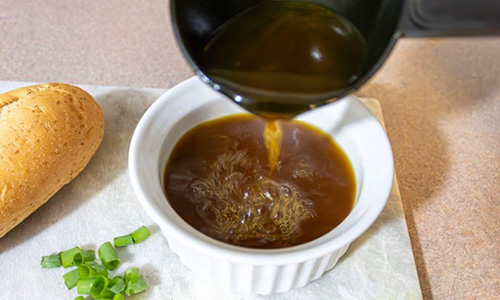 Serve hot and enjoy the soothing effects and quietness!
Serve hot and enjoy the soothing effects and quietness!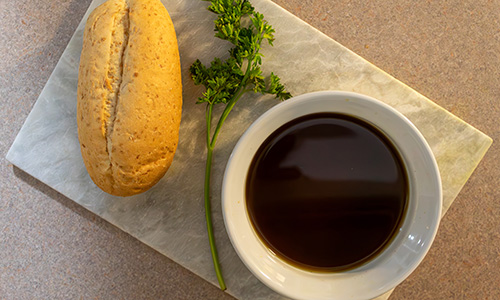
The truth is, that nature truly provides us with everything we need for natural healing. You can finally break free from the vicious cycle of making others rich on lab-made products. I stepped out of that race, and now I’m thriving, knowing exactly which plants replace some of the most known pills.
Here are some of the remedies you will find in The Lost Book of Herbal Remedies II:
… + 200 other remedies you should put to good use for your own health! Learn more here!

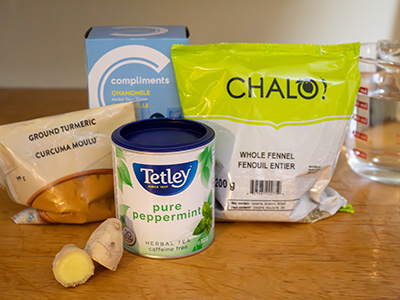
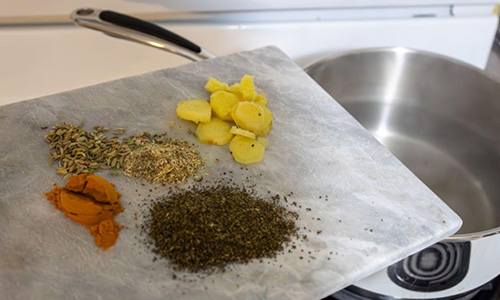
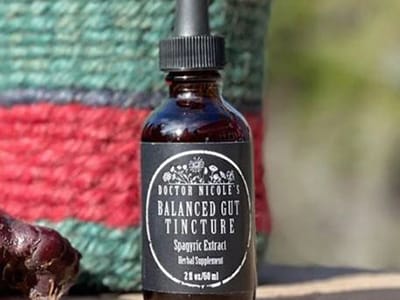
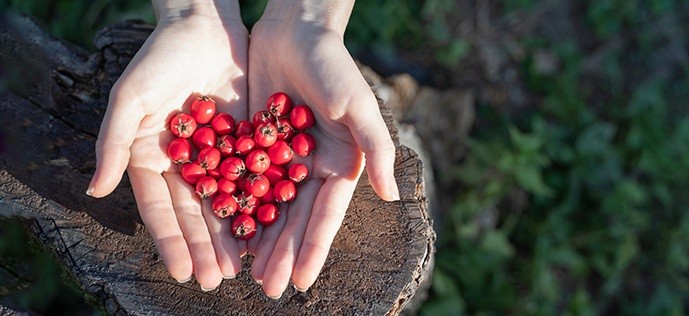
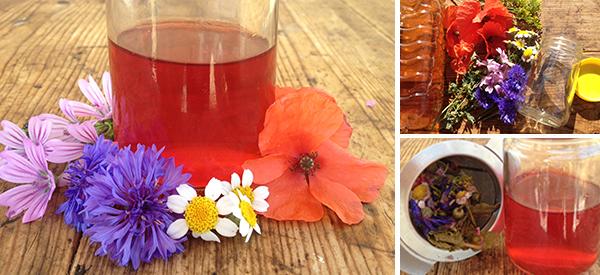

I love your recipes etc, but being a senior, dont have lot of funds to buy so many herbs etc. so would love to take your tinctures instead, but prices are high, and I know you put work and care into making them, but wish price was lower so I could stock up, wish I had done this years ago, instead of now in my 70s. stopped taking all pharma drugs, feel better, but would probably be much better if I had your tinctures. I too have fibro, lyme disease….NO MORE DRUGS. thanks nicole for all you do, love reading your newsletters, have your books also, great reading! stay well my friend,
Hi Kat. I’m with you. I live in Canada and our dollar is pathetic what with the useless, greedy, corrupt government we have. Not only do we have to pay for the products, exorbitant price for shipping, we have to pay fees and duties to come across the border. It’s just one greedy grab after another. And where does that leave people like you and I? In the poor house, not able to purchase the naturally made products to help our bodies thrive. It’s sad the world has become what it has but in the new system, things will be different, and I look forward to that day.
I give you love and happiness Kat, and somehow you will be able to get the things you need so you will not have to go back on prescription meds just to function.
Hello, I have all of Nicole‘s books except for one which I’m buying soon. I have a question about some of the remedies that are on this website and in the books and I want to make sure the newest book that I’m buying has this information a lot of the tinctures do not say how long they’re good for, so I was wondering if that information is included in this new book the stuff takes a while to make a while to sit before you use it so you wanna make it ahead of time, but I don’t know the expiration date on a lot of it so Wondering if that information is in her new book for each remedy thank you so much